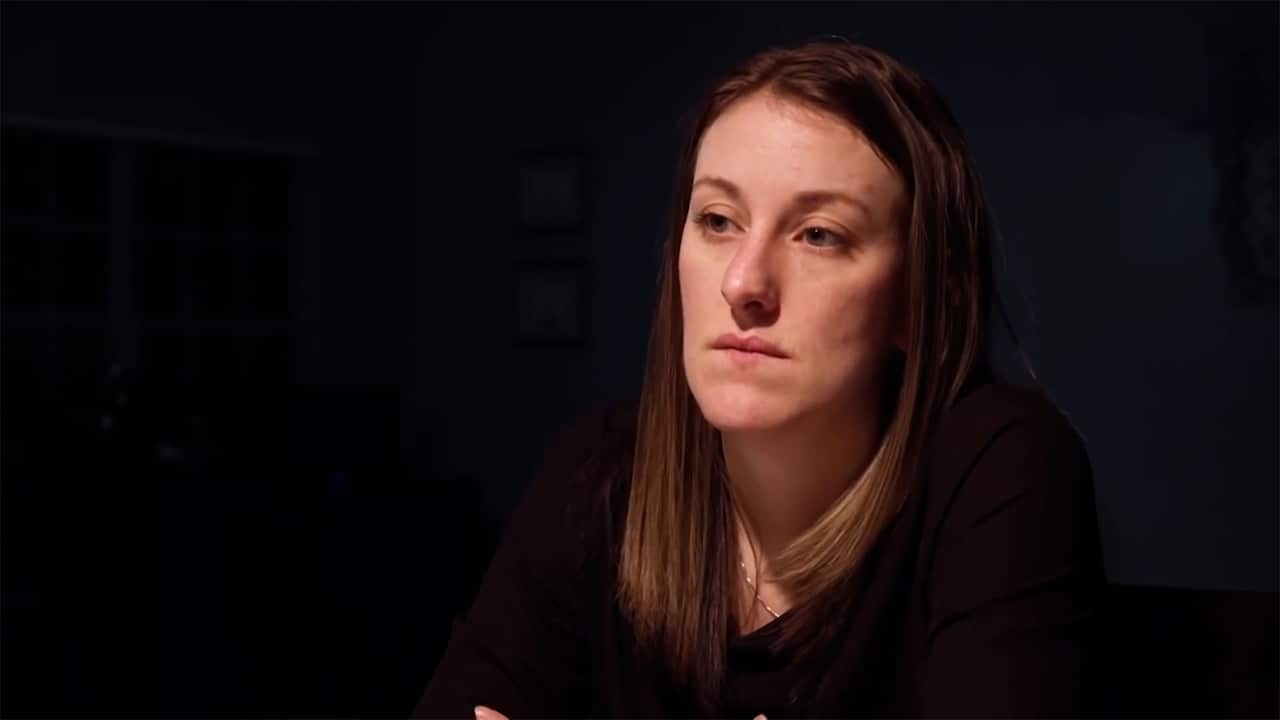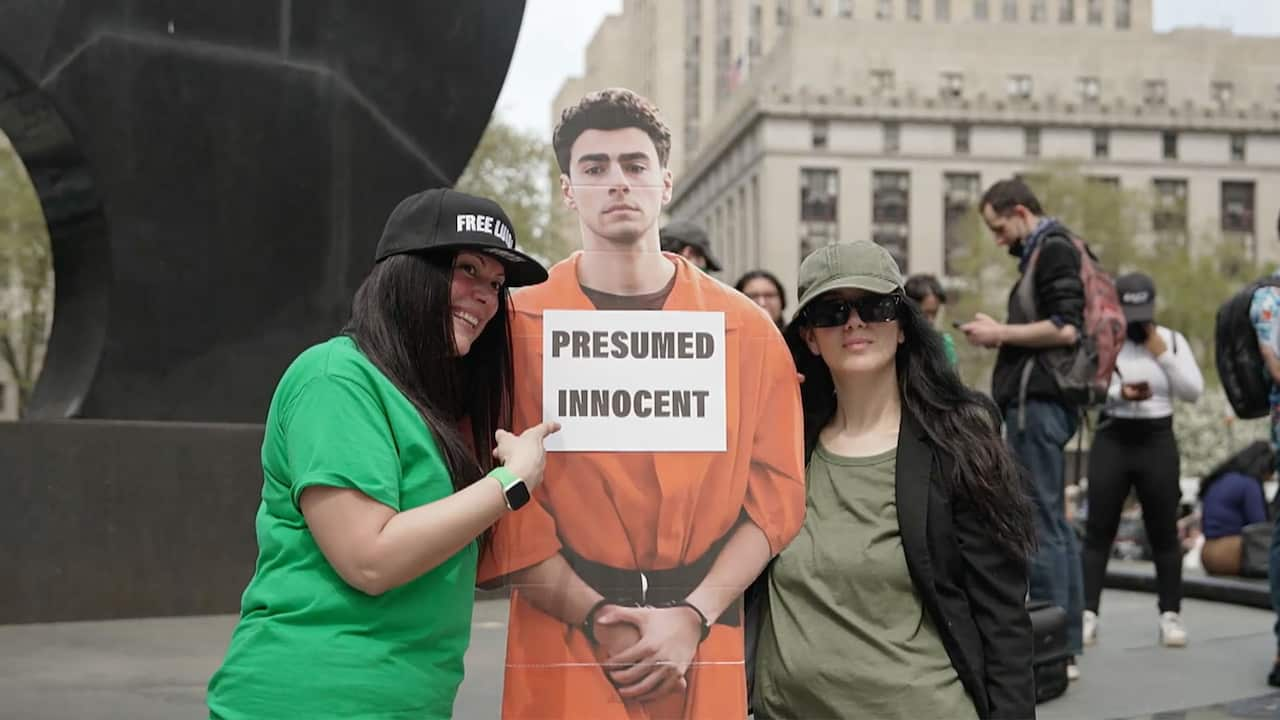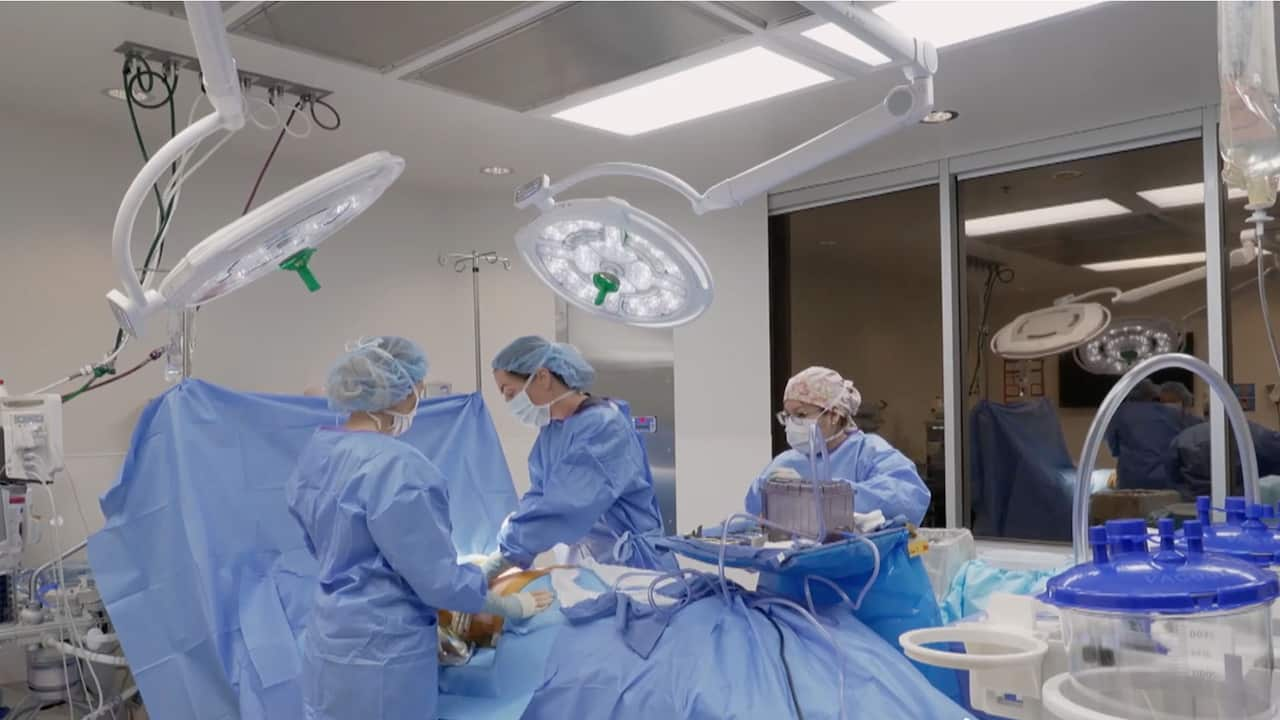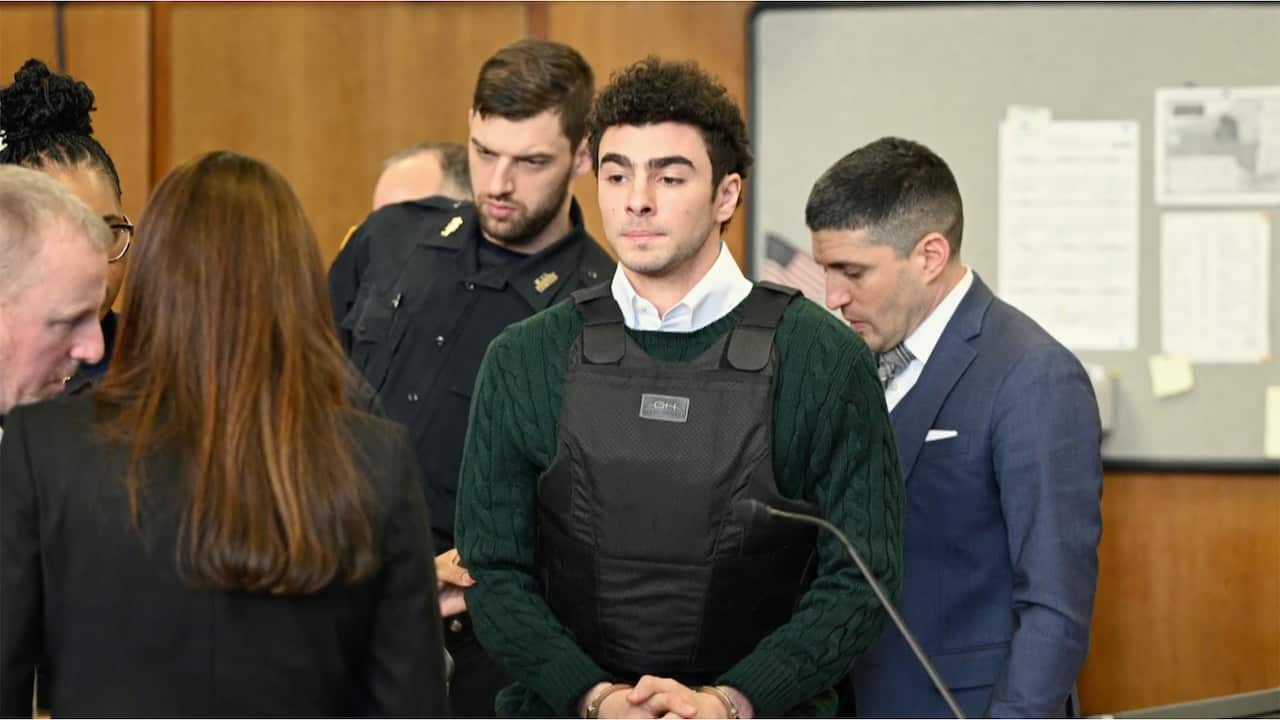Watch Dateline's latest episode, Killing for Healthcare, on SBS On Demand.
When Sarah found out that her breast cancer had spread to her spine, she thought that would be the worst of her bad news.
Instead, she discovered the urgent new round of chemotherapy her oncologist had prescribed cost US$17,000 ($26,500) per month. It was an expense Sarah says her health insurer UnitedHealthcare refused to cover.
The insurer had responded with the statement: "the requested [prescription] medication must meet specific criteria, and coverage cannot be authorised at this time".
It was a huge blow for Sarah.
"I was off the treatment for two months, two whole months. And when you have stage four cancer, two months without treatment is scary.
"This is life or death for me."

The couple have been married since 1991. Sarah describes her relationship with Jerry as 'love at first sight'. Credit: Javafilms
He works 55-hour weeks in a warehouse and often through the night to bring home US$3,000 ($4,700) each month.
He says one-third of his pay goes straight to UnitedHealthcare insurance, which was supposed to cover the cost of Sarah's treatment.
Support and sympathy
Luigi Mangione has been accused of shooting dead Brian Thompson, chief executive of UnitedHealthcare, on the streets of New York City in December 2024.
Authorities allege three words were etched on the bullet casings left behind at the scene of Thompson's shooting: deny, defend, depose.
It's a strategy former employee at UnitedHealthcare Nathalie Collins believes is commonly used to reject medical compensation claims.
Collins says she processed up to 180 calls per day during her time with the insurer.
"We had coaching to be able to deny it [medical claims] … we would have scripts on screen explaining what to say to get them [customers] off the call, or maybe satisfy them."

Nathalie Collins worked in the medical claims department at UnitedHealthcare for nine months. She alleges almost three months of her time at the company was spent in training. Credit: Javafilms
"I definitely don't condone anyone losing their life … But also, the people that are working [dealing] with these insurance companies and healthcare systems, they are dying.
"In some situations, losing limbs, losing body parts because they didn't get treatment in time … I should not be able to hit a button and make such a determination on someone's life."
Led by Thompson, the insurance division at UnitedHealthcare reported US$281 billion ($437 billion) in revenue in 2023 and provided medical insurance to more than 49 million people.
The healthcare executive earned US$10.2 million ($15.8 million) in 2023, including base pay, cash and stock grants, according to The New York Times.
Mangione recently pleaded not guilty to federal murder and stalking charges, which accuse the 27-year-old of spending months planning the attack.
He now awaits further trial and a possible death sentence.

Supporters of alleged murderer Luigi Mangione with a cardboard cutout of him. US authorities have described Brian Thompson’s death as a "premeditated, cold-blooded assassination". But some believe the jury is still out. Credit: Javafilms
One in four US adults feel "moderate" or "a lot" of sympathy for Mangione, according to a survey by CloudResearch. In separate polling by The Generation Lab, 41 per cent of young people aged between 18 to 29 found the killing “acceptable".
While Mangione’s exact motive remains unclear, he has reportedly described the US healthcare system as "parasitic" and exploitative. He also alleges doctors postponed his spinal fusion surgery for years before he underwent the procedure in 2023.
'Unravelling a scam'
In 2024, a US Senate committee investigated plans under the Medicare Advantage scheme and found UnitedHealthcare was one of three health insurance companies that intentionally denied claims.
Personal finance website Value Penguin also reported the company denied 32 per cent of insurance claims that year — a figure significantly higher than most industry averages.
UnitedHealthcare has faced recent allegations by the health outlet Stat regarding the potential use of algorithms to deny care.
In December 2024, UnitedHealth Group, which owns UnitedHealthcare, released a statement regarding its history of claim denial.
"Highly inaccurate and grossly misleading information has been circulated about our company’s treatment of insurance claims," the statement read.
"UnitedHealthcare approves and pays about 90 per cent of medical claims upon submission."

Dr Elizabeth Potter (pictured, centre) says she is one of the last independent specialists in the Texas and services almost 40 per cent of people with breast cancer in the state. Credit: Javafilms
The Texas-based expert employs two full-time staff to build medical case files and chase insurance approvals for her patients.
"I think we're all figuring out in the United States that navigating insurance feels like we're unravelling a scam," she said.
"We've been paying into a system that isn't there when we need it."
Deny, delay, defend
The US is the only developed country without access to universal healthcare, according to the independent researcher The Commonwealth Fund. Instead, the system is underpinned by public and private health insurance, which may cover some or all of someone's medical expenses.
In Australia by contrast, Medicare and the public hospital system provides free or subsidised access to most healthcare services.
The US Census Bureau reported that 92 per cent of people in the US had insurance for some or all of 2023. Yet surveys from that year have also found that up to 42 per cent of US adults with private insurance skipped medical care due to cost.

For decades, the Mangione name was associated with affluence. The family made a fortune in real estate in Baltimore’s Little Italy but have since retreated from public life. Credit: Javafilms
He alleges health insurers often employ a similar tactic to the words found on Mangione’s fatal bullet: deny, delay, defend.
"Maybe the condition will go away. Maybe some cheaper tests emerge … Too often, people die as a result of a delay of diagnosis and treatment," he said.
While Cohen calls himself a "capitalist" he also believes the US healthcare system isn't fit for purpose.
"Insurance companies are private companies that are responsible for their shareholders, not to their members who get the insurance but to their shareholders to maximise profits."
Medical debt is a leading cause of personal bankruptcy in the US. About 6 per cent of adults owe over US$1,000 ($1,600) and 1 per cent of the population have more than US$10,000 ($16,000) in debt due to health costs.

'Free Luigi' protests have been taking place across the US for months. It's expected a crowd of supporters will gather in New York for Mangione's 16 September court appearance. Credit: Javafilms
Sarah continues to fight her own battle. Thankfully, after three months without treatment, she has resumed chemotherapy.
She says a private foundation was moved by her story and offered to cover her medical costs.
"I've heard of people losing everything just to pay for their cancer treatment," she said.
"But I've also heard of people just giving up … not treating it and stopping treatment."





